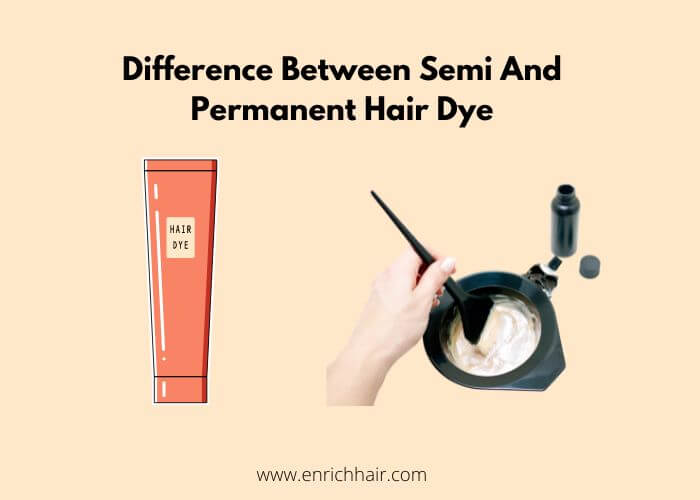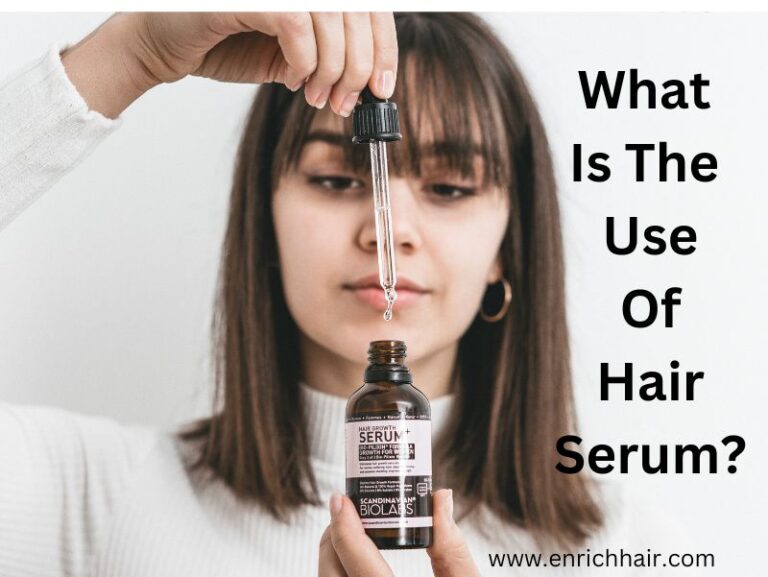Bad Ingredients In Conditioner
Table of Contents
Are you using hair conditioner every day to help keep your hair smooth and healthy? Have you ever taken the time to read what’s inside that bottle? Most people don’t realize it, but there could be some potentially dangerous ingredients hidden in their favorite conditioner. In this blog post, we’ll take a look at some of the worst offenders that can be found in many common varieties of conditioners on the market today. From oily silicones to health-harming chemicals like parabens and phthalates, prepare yourself for a shocking reality check as we delve deep into these bad ingredients in conditioners.
What To Avoid In Conditioners
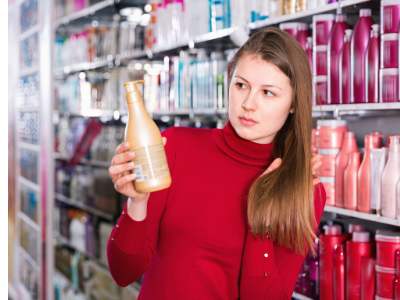
Conditioners are used to soften and hydrate hair, but some of the ingredients they contain can be damaging. To prevent damage and ensure soft, healthy hair, it is important to read labels and avoid products with the following ingredients.
Here are some of the bad ingredients in conditioner that are harmful.
-
Parabens:
Parabens are common preservatives found in beauty products and food items. They can seep into your skin and are associated with endocrine disruption, which can lead to reproductive issues, increased cancer risk, and other health problems. It is best to seek out conditioners that do not contain parabens.
-
Sulfates:
Sulfates are harsh detergents commonly used in shampoos and conditioners. They are effective at cleansing the scalp and removing dirt, oil, and product build-up; however, they can also strip away natural oils that keep hair healthy. Additionally, sulfates generate a lot of foam which can dry out strands over time. When possible, look for a conditioner without sulfates or one labeled as “sulfate-free” instead.
-
Silicones:
Silicones create a protective layer on the surface of your hair shafts to help lock in moisture. While this may make your hair appear smooth and shiny in the short term, long-term use of silicones can lead to build-up on your scalp which leads to dullness, dryness, itchiness, or flakiness. To avoid this problem altogether, look for silicone-free conditioners that use natural oils like argan or jojoba oil instead of moisturizers.
-
Alcohols:
Alcohols such as ethanol or propanol are solvents included in many cosmetics because they evaporate quickly and provide texture control benefits; however, they can end up drying out your hair over time by stripping away its natural oils leaving it feeling brittle and more prone to breakage. To prevent this issue from occurring it is best to choose alcohol-free conditioners instead.
-
Fragrance:
Fragrances are often added to cosmetics including conditioners as a way to mask undesirable odors caused by various chemicals used during manufacturing processes; however, these fragrances may contain irritants like phthalates which have been linked with hormone disruption or endocrine system disruption when exposed over long periods so it is important look for fragrance-free formulas if you want to avoid them completely. Furthermore, if you prefer scented products try using essential oils instead as these tend to be gentler on your skin than synthetic fragrances found in some cosmetic products.
Why Should You Avoid Them
Here we are going to discuss the reasons why should you avoid some bad ingredients in conditioner.
-
Cause scalp and hair damage
Harmful Chemicals: Many conditioners contain chemicals that can cause scalp and hair damage, such as sulfates and parabens. Sulfates are harsh surfactants used as a foaming agent in products like shampoo, soap, and toothpaste. They strip your hair of natural oils, leaving it dry and dull-looking. Parabens are preservatives found in conditioners that can irritate the skin and even cause allergic reactions.
-
Hormone Disruption:
Some chemicals used in conditioners are known endocrine disruptors, meaning they interfere with your hormones. This includes chemicals like phthalates, which are linked to fertility problems and birth defects when exposed to high levels in utero. Additionally, some chemicals can act like estrogen or testosterone on the body’s cells, leading to hormonal imbalances that can cause a variety of health issues.
-
Toxic Fragrances:
Conditioners often contain fragrances that contain volatile organic compounds (VOCs). VOCs have been linked to respiratory problems such as asthma and allergies as well as neurological disorders like headaches or memory loss. Synthetic fragrances often contain phthalates which again are endocrine disruptors and have been linked to reproductive issues in both men and women.
-
Damage Hair Strands:
Some conditioners can potentially damage the hair strands by weakening them due to the excessive use of silicones, oils (especially mineral oil), or other ingredients that build up on the strand leading to hair feeling heavy/oily even after washing it out multiple times or making it look greasy very quickly after styling it with product. This is especially dangerous for those who already have brittle or fragile locks due to chemical treatments such as bleaching or dying their hair because these products will further deteriorate their hair’s health if not carefully chosen for use.
-
Irritation & Allergies:
Certain ingredients found in conditioner formulations can cause skin irritation or allergies depending on individual sensitivities, especially if they have a pre-existing skin condition such as eczema, psoriasis, seborrheic dermatitis, etc. Common allergens present in conditioners include sulfates, artificial colors, fragrances & preservatives such as parabens which should be avoided if you have sensitive skin / know you have an allergy to these compounds.
Major Effects Of Bad Ingredients In Conditioner
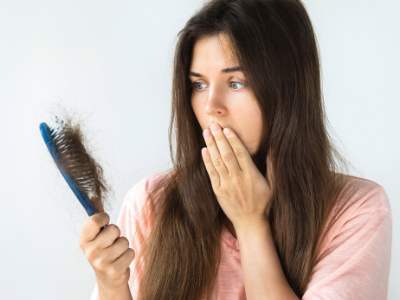
Here are some of the major effects of bad ingredients in conditioner.
-
Hair Loss
Bad conditioning ingredients can also contribute to hair loss by damaging the scalp’s natural protective barrier and clogging pores with heavy oils or waxes. This makes it difficult for new hairs to grow properly, leading to increased shedding or thinning hair over time. If you experience sudden hair loss or excessive shedding after using a certain conditioner, discontinue use immediately and consult a doctor for further advice.
-
Fading Color
Hair color treatments such as highlights and dye jobs are also at risk when using bad conditioning products. Many of these products contain harsh chemicals that can interfere with the color molecules in your hair and cause them to fade faster than normal. To prevent fading, look for conditioners with gentle formulas specifically designed for color-treated locks.
-
Scalp Build-up
Using a bad conditioning product may lead to scalp build-up over time due to excessive waxes or silicone-based agents that accumulate on your scalp’s surface with repeated use over time. This build-up can clog follicles which interferes with circulation and oxygen delivery, leading to slower growth rates or possible infection down the road if not addressed properly.. To avoid this problem altogether, stick with conditioners made from naturally derived products like plant oils which won’t leave behind any lingering residue after rinsing out.
-
Unpleasant Smell & Feel
Finally, using a bad conditioning product may leave you feeling clean but not smelling so great due to unpleasant odors created by harsh detergents or fragrances used in many commercial brands today. Additionally, your locks may feel “crunchy” or stiff due to these same detergents, leaving them without their usual softness and bounce. So always check labels before purchasing a new product – opting instead for lighter formulas made from natural ingredients like botanical oils, shea butter, aloe vera, etc.
How To Find A Good Conditioner
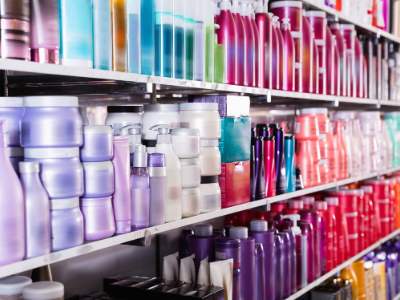
Let’s discuss some important things that we consider before buying a good conditioner for our hair and how to avoid bad ingredients in the conditioner.
-
Determine Your Hair Type
A good hair conditioner starts with determining your personal hair type. Different hair types require different types of conditioners and products. For example, those with thicker, coarser textures may need a heavier cream to help deeply moisturize their hair. Similarly, someone with thinner or finer-textured hair may need an ultra-hydrating formula that won’t weigh it down. Consider the density and texture of your strands when selecting a conditioner.
-
Read Labels Carefully
Once you have pinpointed the type of conditioner best suited for your hair type, you should scour product labels for ingredients that offer the desired benefits you’re looking for. Some ingredients to look out for include plant oils (such as coconut oil), butter (like shea butter), amino acids, proteins, and natural emollients like aloe vera. These are all effective at smoothing and adding moisture to tresses. Additionally, try to steer clear of harsh chemicals such as sulfates and parabens which can strip away essential oils from the scalp and diminish shine in the long run.
-
Take Advantage of Samples
Many drugstores now offer samples of different beauty products in exchange for a small cost or even free of charge! This is a great way to explore different brands without having to make a full commitment by purchasing an entire bottle. Before you leave home on any trips to the beauty aisle, do a quick search online for promotional discounts or coupons that can be used on purchases or sample sizes!
-
Test Out Products Before Buying
If possible, give yourself time before purchasing a particular brand of conditioner by asking friends or family members if they would be willing to share their unused bottles/tubes first. Or better yet – visit local salons where employees can advise on what type of product would suit best based on your unique needs after performing a brief assessment. Furthermore, if one conditioner isn’t doing its job correctly then it’s okay to switch it up and try something new until you find something that works!
Natural Ingredients To Look For In The Conditioner
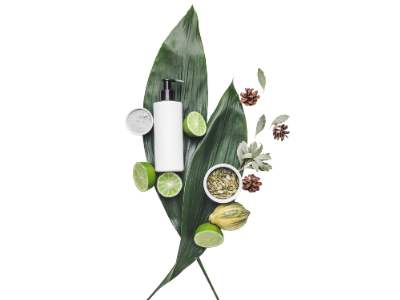
Following are some natural ingredients to look for in the conditioner.
-
Avocado Oil
Avocado oil is a great natural ingredient to look for in hair conditioners. This nutrient-rich oil is known to nourish and moisturize dry, brittle hair. It can penetrate deep into the hair shaft and make your locks softer and more manageable. Additionally, avocado oil is packed with vitamins A, D, and E, which are all essential nutrients that promote healthy hair growth. Not only does it help to restore moisture to damaged strands, but it also helps to prevent split ends and breakage.
-
Coconut Oil
Coconut oil has long been used as an effective natural conditioner for both skin and hair care. It contains lauric acid which helps to strengthen the hair follicles and prevent damage from taking place. Additionally, it deeply penetrates the scalp due to its medium-chain triglycerides (MCTs). The result is a clean scalp that’s free of irritating buildup as well as strong, healthy strands of hair. Coconut oil helps protect the hair against environmental stressors such as pollution while also preventing protein loss that leads to split ends and breakage.
-
Argan Oil
Argan oil is another excellent natural ingredient that many hair conditioners contain due to its conditioning properties. It’s rich in essential fatty acids like oleic acid and linoleic acid which helps to nourish and hydrate the scalp while also promoting healthier-looking locks. Additionally, argan oil has high levels of antioxidants that work to protect and repair damage from environmental aggressors like UV rays or pollution. With regular use, you can expect your tresses to become softer with less frizziness so you can enjoy smooth locks all day long!
-
Aloe Vera Gel
Aloe vera gel is a fantastic natural ingredient for achieving healthier-looking hair since it’s loaded with minerals and vitamins that help nourish the scalp. Its anti-inflammatory properties help soothe irritation on the skin while also helping reduce excess sebum production from happening on the scalp. Aloe vera gel makes a great addition to many hydrating conditioners because it gives them a gentle yet effective moisturizing boost without weighing down your tresses or leaving them feeling greasy afterward!
Top 5 Best Conditioners
Here are the top 5 best conditioners to be aware of bad ingredients in conditioner.
1. Leafality Salon Grade Daily SMOOTHING Conditioner

2. Rahua Voluminous Conditioner

3. Pharmacopia Citrus Conditioner
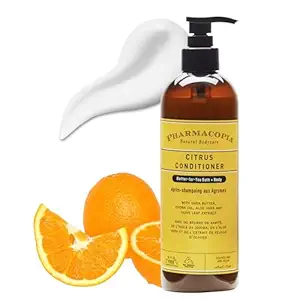
4. Darshana Natural Moisturizing Conditioner with Ayurvedic Botanicals

5. BIOLAGE Ultra Hydrasource Conditioner

If you’re concerned about the potential health hazards of conventional conditioners, look for products made with natural ingredients. You can also make your conditioning treatment at home using healthy oils and herbs. Be sure to avoid any conditioners that contain dangerous chemicals like sulfates, parabens, or phthalates.




